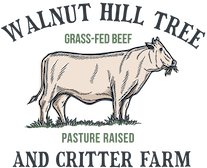Environmental Benefits of Carbon Sequestering
The environmental benefits of grass-fed beef include the absence of large manure concentrations that are seen in feedlot operations. By using rotational grazing, cattle spread manure across pastures and soil microorganisms recycle it back into the ground without creating odors or polluting runoff.
Rotational grazing without grain feeding causes plant roots to continually die back and deposit their carbon in the soil. This allows the plants to draw significant amounts of CO2 from the atmosphere and deposit carbon into the soil as organic byproducts (humus and dead plant matter) thereby reducing carbon levels in the atmoshere. The cover crops like pasture grass also protect the soil from losing these carbon deposits.. Pastured cows are one of the new ways we can deal with climate change.
Bottomline: We are committed to raising cattle and poultry in a humane and environmental sustainable way that delivers a nutrient enriched food to our clients.
A good reference for all first time grass-fed producers is “Grass-fed cattle – How to produce and Market natural beef” by Julius Ruechel.


